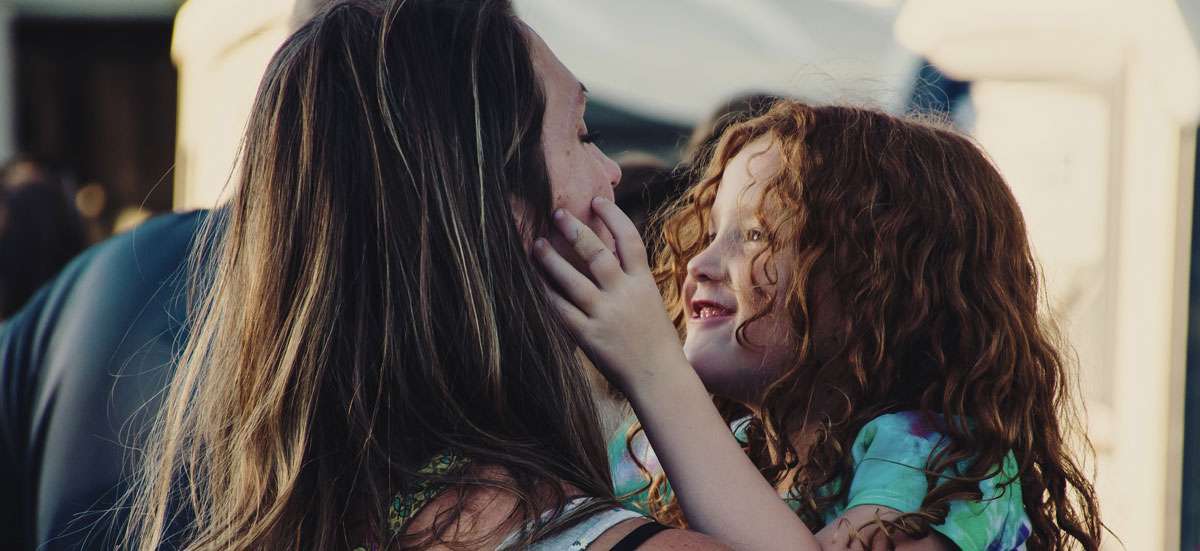The six most important things to tell your kids when you separate
Separation or divorce is a confusing time. And that’s just for the adults. For the children involved, it can seem unbelievably confusing as their parents split and become two independent single parents.
Children at any age need reassurance throughout the separation period and beyond. This might mean extra cuddles for young children, or the opportunity to voice concerns and worries for pre-teens and teenagers.
To help them understand what is happening and where they stand, positive reinforcement with consistent messages, ideally from both parents, is key.
Soothe your child’s concerns over mum and dad breaking up with these six important things to tell your kids when you separate.
(Note: Always talk to your child on their level in age-appropriate language they will understand to avoid overwhelm and upset.)
THE SIX MOST IMPORTANT THNGS TO TELL YOUR KIDS WHEN YOU SEPARATE
1. IT’S NOT YOUR FAULT
It is very common for children to believe your separation has got something to do with them. This is often due to a lack of understanding around the breakup. According to Psychology Today:
“Children have a limited ability to understand what is happening during divorce, what they are feeling and why. Younger children see things from their own perspective, and tend to see themselves as the cause of events. They often blame themselves for their parents’ divorce.”
Even if your child does not voice this, it is possible they may think it on some level.
Tell your child that divorce is an ‘adult problem’ and although it has everything to do with them in terms of ‘what happens next’, it is not their fault. Depending on the age of your child, give them a simplified version of why you are divorcing, whilst reinforcing that they are not to blame. And be ready to answer any questions they have with answers that make it very clear that they have done nothing wrong.
2. WE BOTH LOVE YOU JUST AS MUCH
For children who have grown up with unconditional love from both parents, learning that mum and dad don’t love one another anymore, is shocking. It can make them question how love works and its transience. Most worrying they may think: ‘If mum and dad have stopped loving one another, could they stop loving me’.
Never is there a time to show your children your unquestioning love for them as when you are going through a separation or divorce.
Reassurances of love don’t have to be verbal. They can be given in the form of a cuddle, one-on-one time, notes in packed lunches and happy routines. For older children, love can be shown by reaching out to them on their level through their interests, and by being open and checking-in.
Most children will cope with all aspects of your divorce if they are secure in the knowledge that both their parents still love them, and that will never change.
3. EVERYTHING WILL BE OK
A family separation for a child can seem like their world is falling apart. Children thrive from familiarity and routine. Yet, everything is changing and is out of their control. It is understandably scary and can make them question: ‘What will happen next?’.
It is important to be future-focused when talking to your child i.e. not what you are leaving behind, but all the wonderful things that are yet to come.
An article on The Motion Machine explains:
“When we find ourselves in those less-than-ideal present moments, having something to look forward to in the future can give us the motivation and persistence to keep moving forward even during those difficult times.”
Be enthusiastic when talking to your child about the future. If they see you are excited by it, they will be too. Let them know that, although it is understandable to feel sad about the separation, everything is going to be OK and better things are yet to come.
4. WE ARE ALWAYS HERE TO TALK
Going through a separation as an adult is a chaotic time. Along-side the emotions, you will be balancing the practicalities and logistics of a family breakup. You would be forgiven for moments of madness and the occasional meltdown.
As a child watching their parents deal with the heavy load, they may be inclined to stay quiet and not burden you with their problems or concerns.
Do not let this happen.
Make sure your child knows that it doesn’t matter how busy you are, you always have time to talk or to listen. Validate their place in the situation and give them a voice so they have control over parts of the separation.
If your days are completely hectic, set a time each day to spend with your child. Bedtime is a good time to open up the conversation with a question like: ‘What was the best part of your day?’, which can ultimately lead to learning how your child feels and what their worries are.
5. IT’S OK TO FEEL SAD
As parents, we want our children’s worlds to be perfect. However, a family breakup is not perfect, and everyone involved will have a myriad of feelings to work through … kids included.
Legitimise your child’s feelings and give them time and support to deal with each emotion. This could include anger, sadness, fear, disappointment or insecurity. For children who have lived amongst conflict they may feel relief or calm, which can lead to guilt. Let them know that whatever they feel is fine and normal.
It is also important to let your child know that there is no timescale to get over a family breakup. They can take a long as they need. Young children will process feelings a certain way, but as teens, when they have a better understanding of the situation, they may process them again, but differently.
6. YOU ARE NOT ALONE
It is common for children to feel lonely during a separation. With mum and dad preoccupied they grapple with their new normal and don’t always succeed. They might find it hard to explain to school friends the enormity of the situation, especially if many of their friends have partnered parents.
Put extra emphasis on play dates, extra-curricular activities and time spent with extended family and friends. Make sure they feel supported and loved.
There are some fabulous books available to help children of all ages deal with divorce. Just knowing other children are going through a similar situation can be a great comfort.

